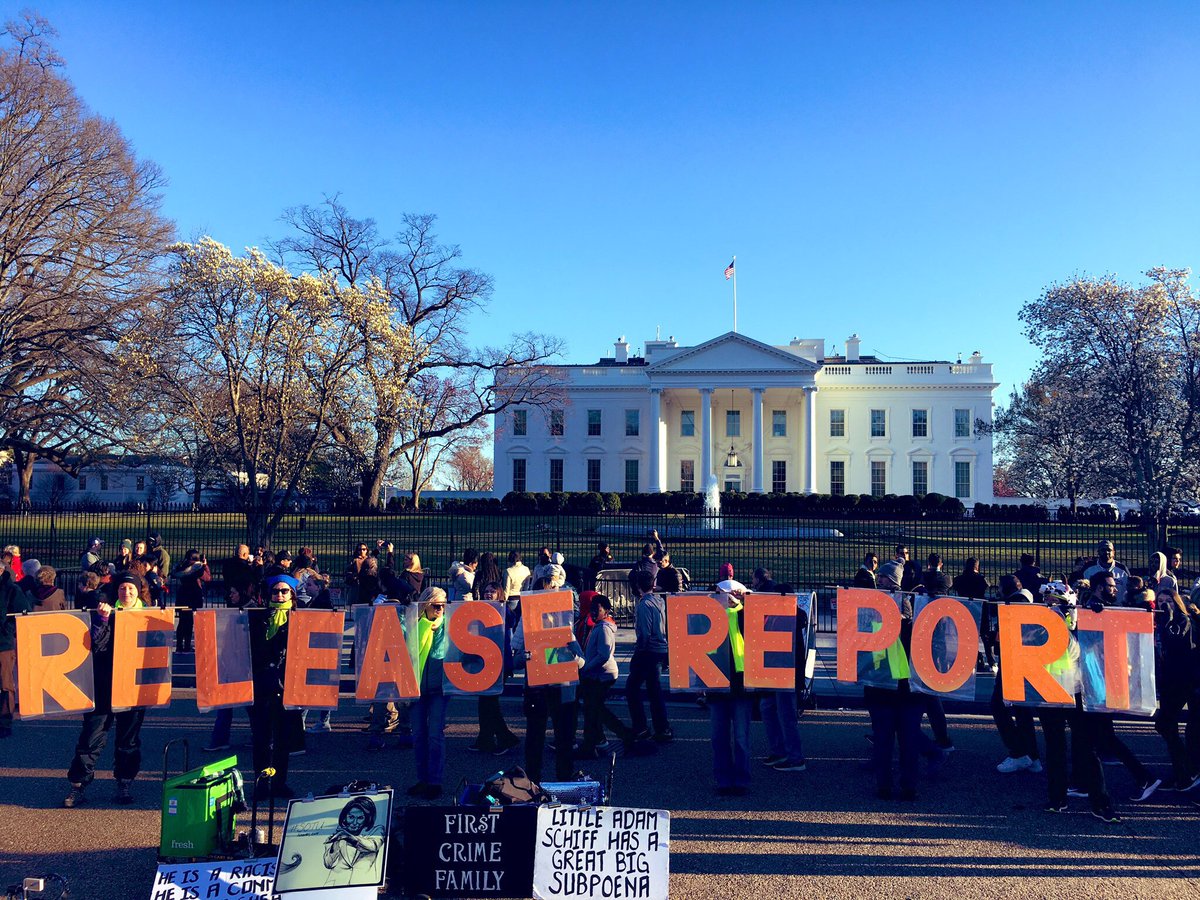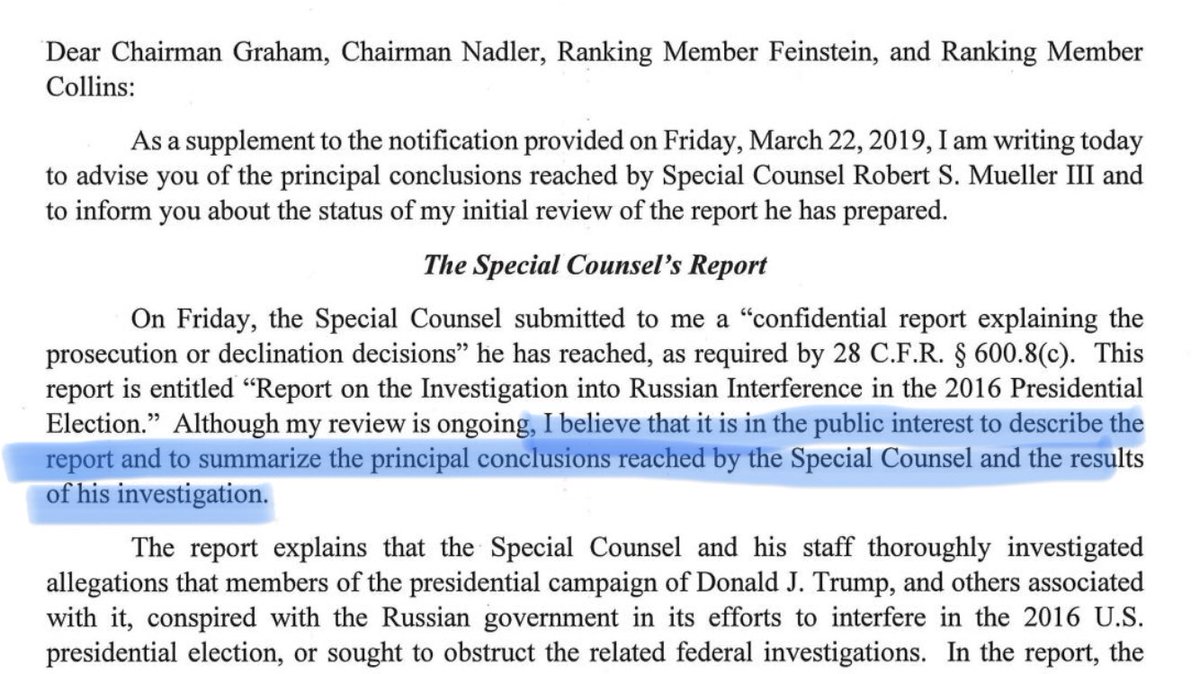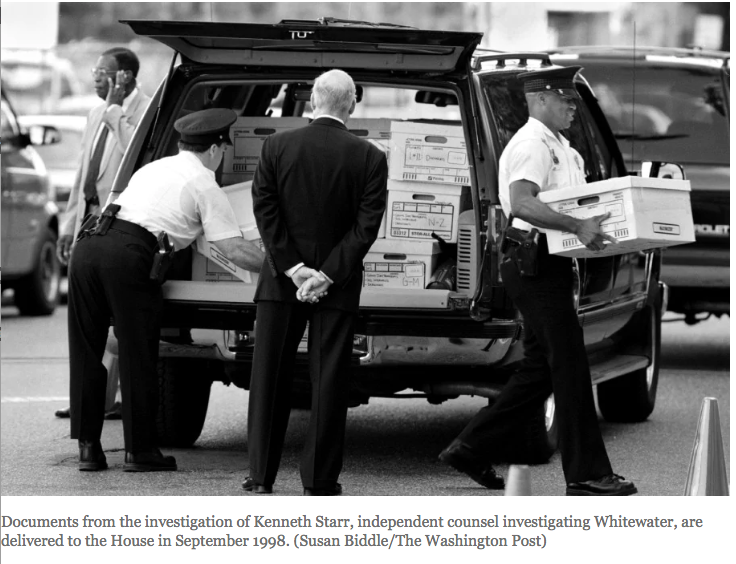Congress prepares for a battle over secret grand jury evidence in Russia inquiry; 'I intend to fight'Bart Jansen, USA TODAY Published 6:00 a.m. ET March 31, 2019 | Updated 8:22 p.m. ET March 31, 2019
CLOSE
Speaker Pelosi calls attorney general's Mueller report letter 'condescending' Time
WASHINGTON – A historic clash is brewing between Congress and Attorney General William Barr over some of the most sensitive evidence in special counsel Robert Mueller's investigation.
Barr is reviewing Mueller's final report and said he hopes to reveal much of it by mid-April. House Democrats want it sooner. They signaled that their biggest fight won't be over how quickly they can read the report but whether they get access to some of the evidence Mueller gathered that did not lead to criminal charges.
The fight centers on evidence obtained using grand juries. Barr said federal law requires him to keep it secret, even though the government has disclosed it in previous high-profile cases. The evidence is particularly sensitive because grand juries give prosecutors the power to force reluctant witnesses to testify.
Democratic lawmakers said they need access to that evidence to get a clear picture of Russian interference in the 2016 election and how that benefited Donald Trump's presidential campaign, even if no Americans conspired with foreigners. They could launch a legal battle to obtain the information as soon as Wednesday.
“In many ways, I think the important thing is not so much the report, as the backup material,” said Paul Rosenzweig, who was a prosecutor on independent counsel Kenneth Starr’s team that investigated President Bill Clinton. When Starr's investigation ended, his team drove two cars loaded with boxes of paper and electronic files to Congress.
Mueller's investigation made extensive use of grand juries, but it is unclear how much of his final report relies on evidence they collected. His prosecutors summoned witnesses to testify before the grand jury about a meeting in 2016 at Trump Tower in which some of Trump's top aides were promised Russian "dirt" on Hillary Clinton and about overtures between Trump associates and WikiLeaks, the anti-secrecy group Russian intelligence used to publish emails it stole from Democratic political organizations. Some of those details could prove embarrassing to Trump, even if they do not amount to evidence of a crime.
The investigation led to charges against Russians accused of attempting to influence the election and against a half-dozen Trump aides who prosecutors said lied during the inquiry. Barr said Mueller's investigation did not establish that Trump or his campaign conspired with Russian's election interference campaign.
Barr announced Friday he expects to release the redacted report by mid-April. "Everyone will soon be able to read it on their own," he said.
Judiciary Committee Chairman Jerry Nadler, D-N.Y., wants to see the full Mueller report.
Judiciary Committee Chairman Jerry Nadler, D-N.Y., wants to see the full Mueller report. (Photo: Jose Luis Magana/AP)
House Judiciary Chairman Jerry Nadler, D-N.Y., told Barr in a letter Friday that rather than wasting time and resources on keeping portions of the report from Congress, he should join lawmakers in asking a court to release all grand jury information, "as has occurred in every similar investigation in the past."
Democrats questioned Barr's motives for not turning over more.
“It’s a public document. It has to be turned over,” said Rep. Jamie Raskin, D-Md. “But as the week goes on, it just seems like the smell of a whitewash and a cover-up is getting thicker and thicker.”
History of releasing secret evidence
Grand juries operate secretly to protect witnesses, to keep suspects from learning they are being investigated and to protect the privacy of people who are not charged with a crime. Federal law generally forbids the government from revealing grand juries' work. But in investigations into Presidents Richard Nixon and Bill Clinton, judges ordered the release of grand jury evidence because the public interest outweighed witness privacy.
Lawmakers of both parties urged the release of Mueller's entire report, so people can draw their own conclusions about what he found. Rep. Devin Nunes of California, the top Republican on the House Intelligence Committee, told the Conservative Political Action Conference that he wants everything from Mueller – every email, every warrant "for all of America to see."
Trump said he has no objections, declaring Friday, "I have nothing to hide."
The president has called for the release of even more sensitive information that he and his allies said will show he was unfairly targeted by investigators. They focused in particular on secret surveillance warrants for a former campaign aide, Carter Page. Trump authorized the release of parts of those orders last year, the first time such information had been revealed publicly.
Special Counsel Robert Mueller, and his wife Ann, leave St. John's Episcopal Church, across from the White House, after attending morning services, in Washington on March 24, 2019.
20 Photos
Robert Mueller completes investigation into Russian interference in the ...
Special Counsel Robert Mueller, and his wife Ann, leave St. John's Episcopal Church, across from the White House, after attending morning services, in Washington on March 24, 2019.1 of 20
Robert Mueller departs St. John's Episcopal Church, across from the White House, after attending services, in Washington on March 24, 2019.
Robert Mueller, and his wife Ann, walk past the White House, after attending St. John's Episcopal Church for morning services on March 24, 2019 in Washington.
Robert Mueller, and his wife Ann, walk to their car after attending services at St. John's Episcopal Church in Washington on March 24, 2019.
U.S. Attorney General William Barr, right, leaves his house on March 24, 2019 in McLean, Va. Barr continues to review special counsel Robert Mueller's report on alleged Russian meddling in the 2016 presidential election.
An empty hallway at the U.S. Capitol on Saturday morning, March 23, 2019 in Washington, DC. Special Counsel Robert Mueller delivered the report from his investigation into Russian interference in the 2016 presidential election to Barr yesterday and Barr is expected to brief members of Congress on the report potentially as soon as this weekend.
U.S. Attorney General William Barr departs his home March 23, 2019 in McLean, Va.
William Simms places newspaper front pages from around the nation in display cases at the Newseum, Saturday, March 23, 2019, in Washington.
The U.S. Capitol is seen before sunrise, Saturday, March 23, 2019, in Washington. Special counsel Robert Mueller closed his long and contentious Russia investigation with no new charges, ending the probe that has cast a dark shadow over Donald Trump's presidency.
A bicyclist passes by the Justice Department on Pennsylvania Ave. where the media is set up, March 23, 2019 in Washington, DC.
U.S. Attorney General William Barr rides in the first black vehicle while arriving at the Justice Department on March 23, 2019 in Washington, DC.
Members of the press wait outside one of the office buildings used by independent prosecutor and former FBI director Robert Mueller on March 22, 2019 in Washington, DC. President Donald Trump went on air Friday to double down on his attempt to discredit a massive probe into his campaign's links to Russia, which is expected to be released shortly. Ever since the investigation run by independent prosecutor and former FBI director Robert Mueller began nearly two years ago Trump has insisted that it is a "witch hunt" and a "hoax."
A lone demonstrator departs after protesting outside the US Department of Justice March 22, 2019 in Washington, DC, shortly after the announcement that Special Counsel Robert Mueller had wrapped up his two-year investigation of Russian meddling in the 2016 US election.
Bodyguards wait for the departure of the US attorney General outside the US Department of Justice March 22, 2019 in Washington, DC, shortly after the announcement that Special Counsel Robert Mueller had wrapped up his two-year investigation of Russian meddling in the 2016 US election.
A copy of a letter from Attorney General William Barr advising Congress that Special Counsel Robert Mueller has concluded his investigation, is shown Friday, March 22, 2019 in Washington. Robert Mueller turned over his long-awaited final report on the contentious Russia investigation that has cast a dark shadow over Donald Trump's presidency, entangled Trump's family and resulted in criminal charges against some of the president's closest associates.
Journalists work outside of the House Judiciary Committee in the Rayburn House Office Building after the announcement that Special Counsel Robert Mueller had submitted his report to Attorney General William Barr, March 22, 2019 in Washington, DC. U.S. Attorney General William Barr told the House and Senate Judiciary Committees in a letter that Special Counsel Robert Mueller had completed his investigation into Russian interference in the 2016 election.
Attorney General William Barr leaves his home in McLean, Va., on Friday, March 22, 2019. Special Counsel Robert Mueller is expected to present a report to the Justice Department any day now outlining the findings of his nearly two-year investigation into Russian election meddling, possible collusion with Trump campaign officials and possible obstruction of justice by Trump .
President Donald J. Trump speaks to the media as he departs the White House for his Mar-a-Lago resort in Washington, DC, on March 22, 2019. The Trump administration, along with lawmakers, are awaiting the release of special counsel Robert Mueller's report into President Trump's behavior.
The White House early in the morning after a rainy night in Washington, DC, on March 22, 2019. The Trump administration, along with lawmakers, are awaiting the release of special counsel Robert Mueller's report into President Trump's behavior.
Special Counsel Robert Mueller arrives at his office on March 21, 2019 in Washington DC. It is expected that Mueller will soon complete his investigation into Russian interference in the 2016 presidential election and release his report.
Next Slide
In previous investigations, special prosecutors and lawmakers asked federal judges overseeing the grand juries to release the evidence. In 1998, Starr released 8,000 pages of report, appendices and supplemental information about his investigation of Clinton that included transcripts of grand jury testimony and details about subpoenas. The release was approved by a special division of the D.C. federal appeals court.
Nick Akerman, an assistant special prosecutor during Watergate, said prosecutors got permission from a federal judge in Washington to release a “road map” of grand jury evidence to the House of Representatives for possible impeachment proceedings. Akerman, who is in private practice, said the public interest vastly outweighs the privacy interests of individuals in such cases.
“They certainly should go to court and get an order releasing this thing,” Akerman said of lawmakers seeking the Mueller report. “They’ve got an absolutely legitimate right to know what’s in there and should have every single fact that is in there and know exactly why Mueller made the decisions he made. Even worse, what you’ve got now is an attorney general who has basically sugarcoated the thing by making his own decision on obstruction of justice on a totally bogus ground.”
'I intend to fight'
House Democrats are preparing for just such a legal battle.
“The entire unfiltered report as well as the evidence underlying that report must be made available to the Congress and to the American people,” Nadler said. “I intend to fight for that transparency.”
The Justice Department declined to comment.
Barr said in a four-page notification to Congress on March 24 that he was working to protect “the integrity of grand jury proceedings.” Republican lawmakers agreed with the need to keep grand jury evidence confidential in cases where people weren’t charged with crimes.
The head of the Senate Judiciary Committee, Sen. Lindsey Graham, R-S.C., said lawmakers should "give Barr a reasonable amount of time to go through the report and make sure the grand jury testimony isn’t disclosed, which would violate the law.”
Sen. Lindsey Graham, R-S.C, right, says Attorney General William Barr should be given time to sift through the Mueller report to protect grand jury information. (Photo: Chip Somodevilla, Getty Images)
Senate Majority Leader Mitch McConnell, R-Ky., said the report could be a tool to combat Russian attempts to interfere in U.S. politics, which he called "dangerous and disturbing."
Rep. Jim Himes, D-Conn., a member of the House Intelligence Committee, said lawmakers must trace threads of Mueller's investigation that didn’t lead to criminal charges in an effort to protect the country from interference.
“The Russians helped elect Donald Trump. That is not subject to debate,” Himes said. “Donald Trump’s son and campaign were offered help, and instead of going to the FBI, they welcomed it. Turns out, that, according to Mueller, that doesn’t rise to the level of a chargeable conspiracy.”
The next step would be for the House Judiciary Committee to subpoena the report and its underlying evidence.
https://www.usatoday.com/story/news/pol ... 266131002/ 












